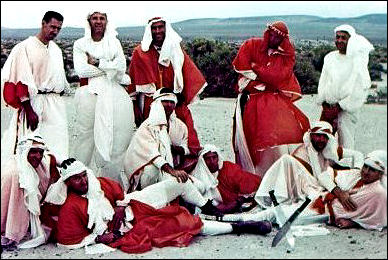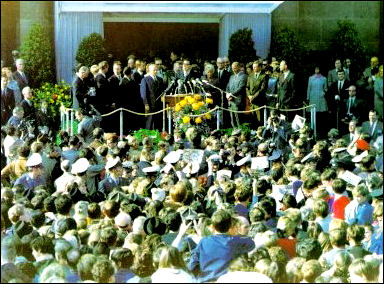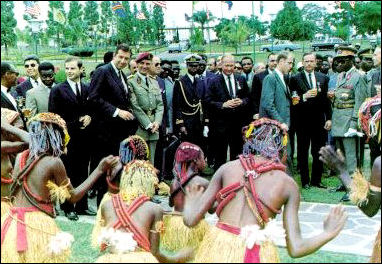
|
| Desert survival training was part of the regular program of what-ifs. If any flight had ended with an emergency landing in a desert, sun-protective dress and tents could have been fashioned from spacecraft parachutes. The astronauts were taught the best tricks for survival in the desert. Left to right, seated: Borman, Lovell, Young, Conrad, McDivitt, White. Standing: training officer Zedehar, Stafford, Slayton, Armstrong, and See. |




